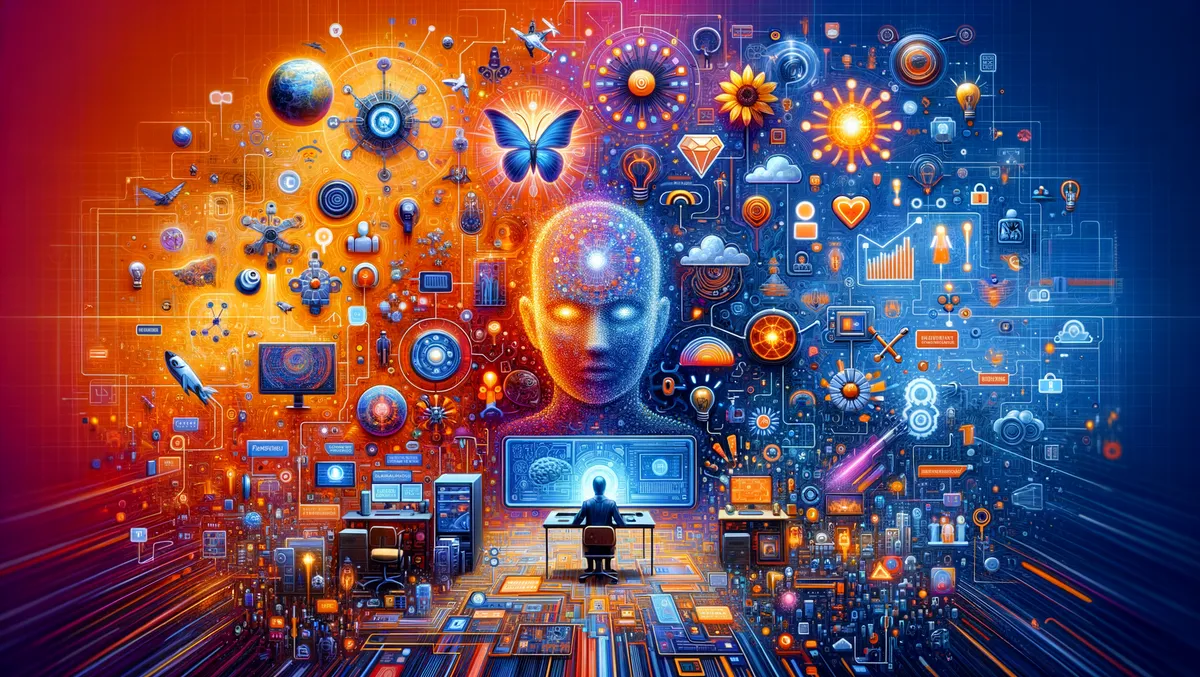
AI & hybrid work: Predicting 2024's technology trends
As the business world continues to evolve, experts predict several emerging trends in the tech industry, led by the integration of artificial intelligence (AI) and a surge in hybrid working. Helen Hawthorn, Head of Solution Engineering EMEA at Zoom, shares her foresight for the year 2024, focusing on the future of unified communications and collaboration (UC&C) tools.
The influential tech leader first draws attention to new challenges that businesses and industries could face. As companies adopt hybrid work models, the significant tasks lie in adequately managing remote and in-office teams and ensuring a seamless collaboration and communication process. The span of remote work and return to offices must be delicately balanced so as not to impact employee well-being adversely. "Addressing this challenge requires a holistic approach to support the mental health and productivity of the workforce," Hawthorn suggests.
In addition, increased reliance on digital communication highlights an urgent need for strong cybersecurity measures. Hawthorn defends the view that not only must an organisation's technology adhere to supreme security standards, but staff members could inadvertently pose substantial risks. Training and robust security protocols are needed, she underlined. Hawthorn also spoke of the crucial task of maintaining data privacy amidst evolving regulations and compliance standards worldwide. "Ensuring that communication platforms adhere to these requirements will be a priority," she said.
As for the future of UC&C tools, Hawthorn envisages virtual meetings becoming more inclusive, accessible and collaborative, thanks to AI-driven technology. Automated live captions, gesture recognition, and AI-driven accessibility enhancements are some of the pioneering features. "These features will be increasingly important in enabling and empowering the entire workforce," reiterated Hawthorn. Automated live captions enable real-time transcriptions, supporting language diversity, while gesture recognition can enhance non-verbal communication. AI-driven enhancements are also expected to personalise interfaces based on user preferences, taking into account diverse needs and fostering inclusivity.
She also highlights substantial growth in AI-driven innovations, which will play a critical role in refining the meeting experience. Intelligent meeting assistants, real-time language translation, personalised content recommendations, and smarter automation promise to create a more intuitive user environment and seamless collaboration. "We anticipate continued advancements in smart scheduling, automated follow-ups, and intelligent content organisation that will streamline workflows, ultimately boosting efficiency and productivity," asserted Hawthorn.
Furthermore, advances in Natural Language Processing (NLP) could be a game-changer, with improved chatbot functionalities, advanced voice commands, and seamless integration with third-party applications anticipated. This should culminate in a more fluid UX in collaboration tools. Also, AI-driven security measures will aid threat detection and response mechanisms, ensuring user security.
Lastly, Hawthorn points to personalisation playing a large role in shaping the future of collaborative tools. AI algorithms will adapt to user preferences and optimise setup, promising a personalised experience more adaptable to diverse needs.


